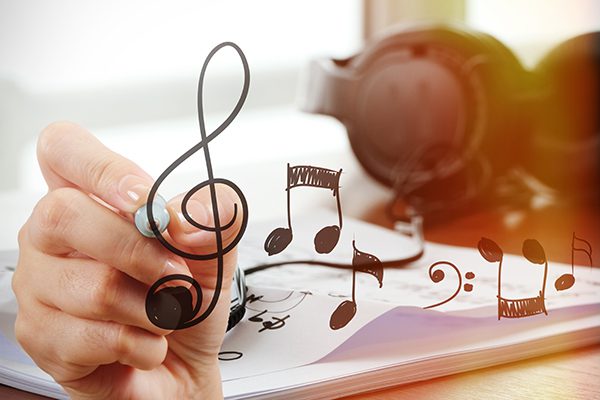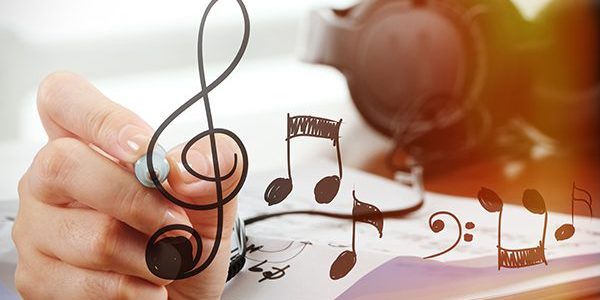
Music can name the unnamable and communicate the unknowable. —Leonard Bernstein
Most of us recognize that music can be more than a means to fill the silence. Many of us have experienced its power of persuasion. It convinces us to get up and dance when we are far more comfortable sitting. It induces laughter when we think all we could produce are tears. It converts fear into courage and impossibility into probability. Sometimes it has the power to be the theme song for our current lives. It is one of the rare resources that can — and does — fuel the soul.
Yet, we often don’t use it as an essential resource when creating change in our lives. What if we now start using music as our map for how we navigate the unknown terrain that lies ahead? Our clients pay us to have a different experience, to help them access their wisdom from an untapped place. How can we start using music to help our clients access what is hidden?
As a place to begin, consider asking questions related to what they are currently wrestling with regarding their goal.
Example Questions:
- What familiar tune plays in the background when you start thinking about changing your world?
- What words in the song do you resonate with most?
- How do the words compete for your attention?
- What words would you have to tune out or turn down the volume to tune into what you are to hear fully?
- How will listening from that new angle provide you a different perspective to how you see your goal/desire and the challenges tied to it?
Music is the strongest form of magic. —Marilyn Manson
I believe music is magical. I could be having an especially crummy day, then “Escape (The Piña Colada Song)” comes on the radio, and all of a sudden, I’m transported from the confines of my office to a quaint little tiki bar on some remote beach. The easy tune instantly relaxes my shoulders, my head begins to bob to the rhythm of the music, and the sway of the lyrics sweep my worries away. Before I know it, I am thirsty for a tropical drink with an umbrella in it.
Repeatedly music proves its potency. In 2007, USA Track & Field believed it so powerful that they decided to ban portable music during races “to prevent runners from having a competitive edge.” It is no secret that athletes for ages have known about and relied on the advantages of music to motivate and enhance their performance. The arts are no different. Artists, writers and inventors have used music to rouse their muse from the beginning of time. What we may not know are all the not-so-obvious ways music can play up one’s game. In 2020, the American Association of Retired Persons (AARP) did a study and found that people showed an increased ability to remember names, learn new things, and complete projects when listening to background music. A few years before that, Johns Hopkins Medicine discovered that listening to unfamiliar music can increase creativity and problem-solving skills. They also learned the following additional benefits of listening to music:
- Energizes or relaxes the body.
- Increases connection to others.
- Alleviates pain.
- Reduces stress hormones.
Knowing a person is like music; what attracts us to them is their melody, and as we get to know who they are, we learn their lyrics. —Anonymous
As coaches, many of us recognize that music loses its power, magic and potency when prescribed to others. While music can be “the map” in the form of questions to uncover a person’s melody, mood or lyrics, that same map cannot assume a person’s territory, thus their step-by-step journey of self-discovery. Our job is to utilize resources such as music in unexpected and respectful ways that allow clients to discover for themselves what makes their hearts sing. Then and only then, can music, “Wake up one’s life and sing the melody of the soul” (adapted from Amit Ray).
How can you utilize the metaphor or the use of music with a client today? What new experience might unfold for your clients?
©2021 Jennie Antolak, MA, MCC. All rights reserved.







